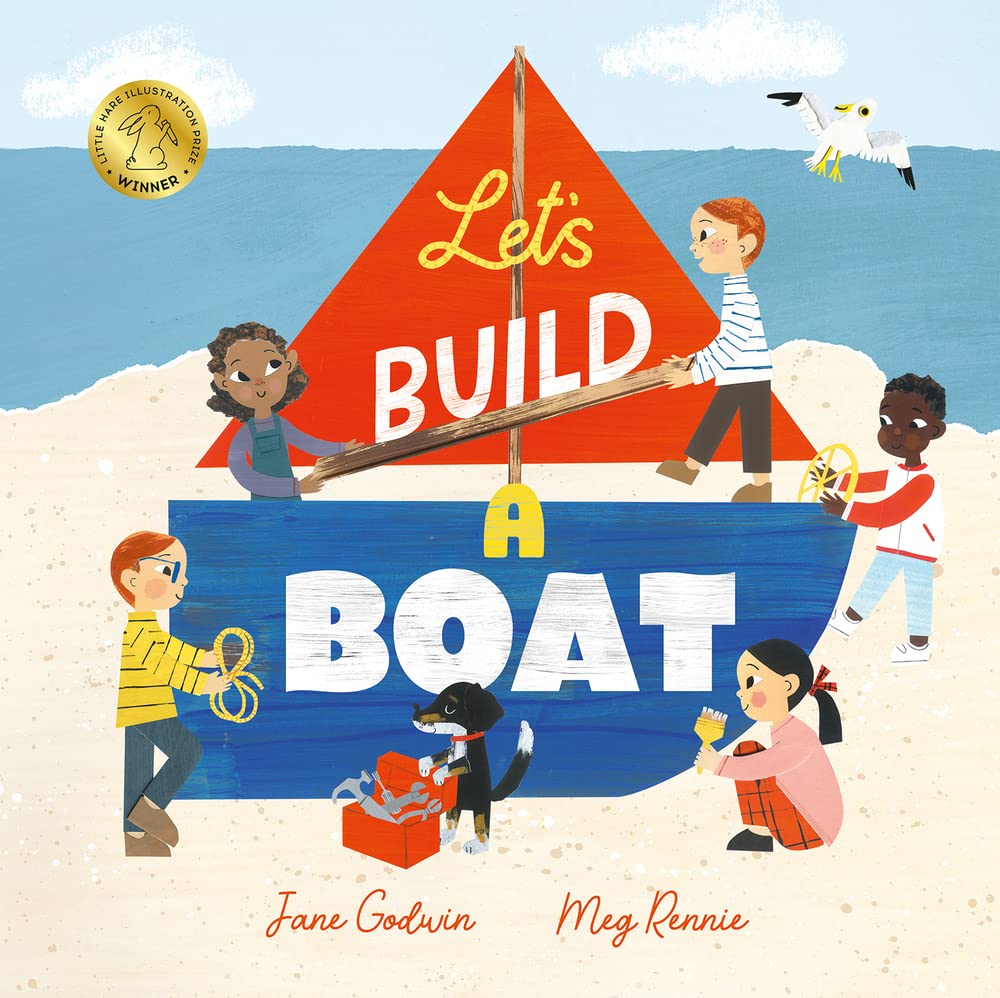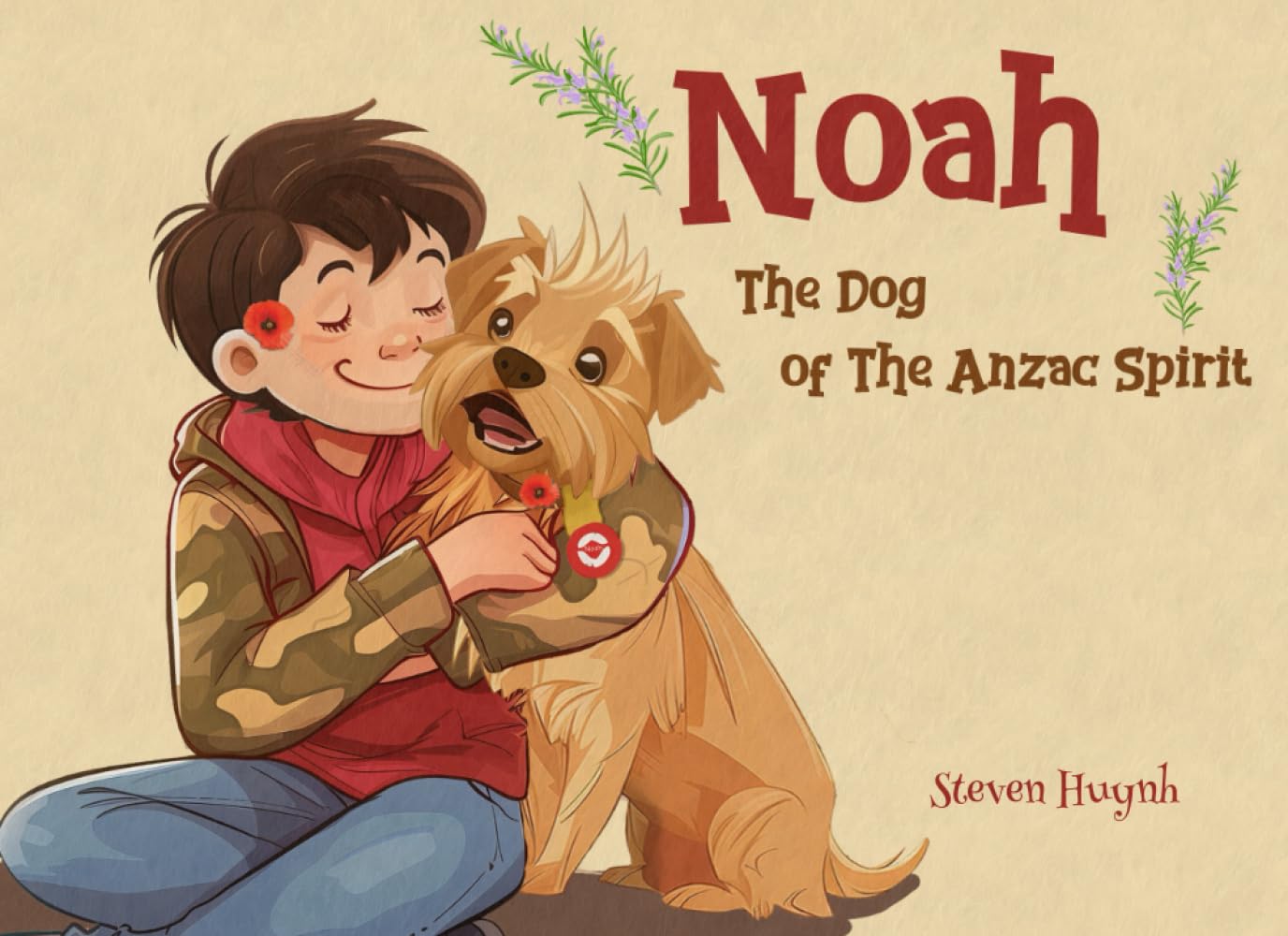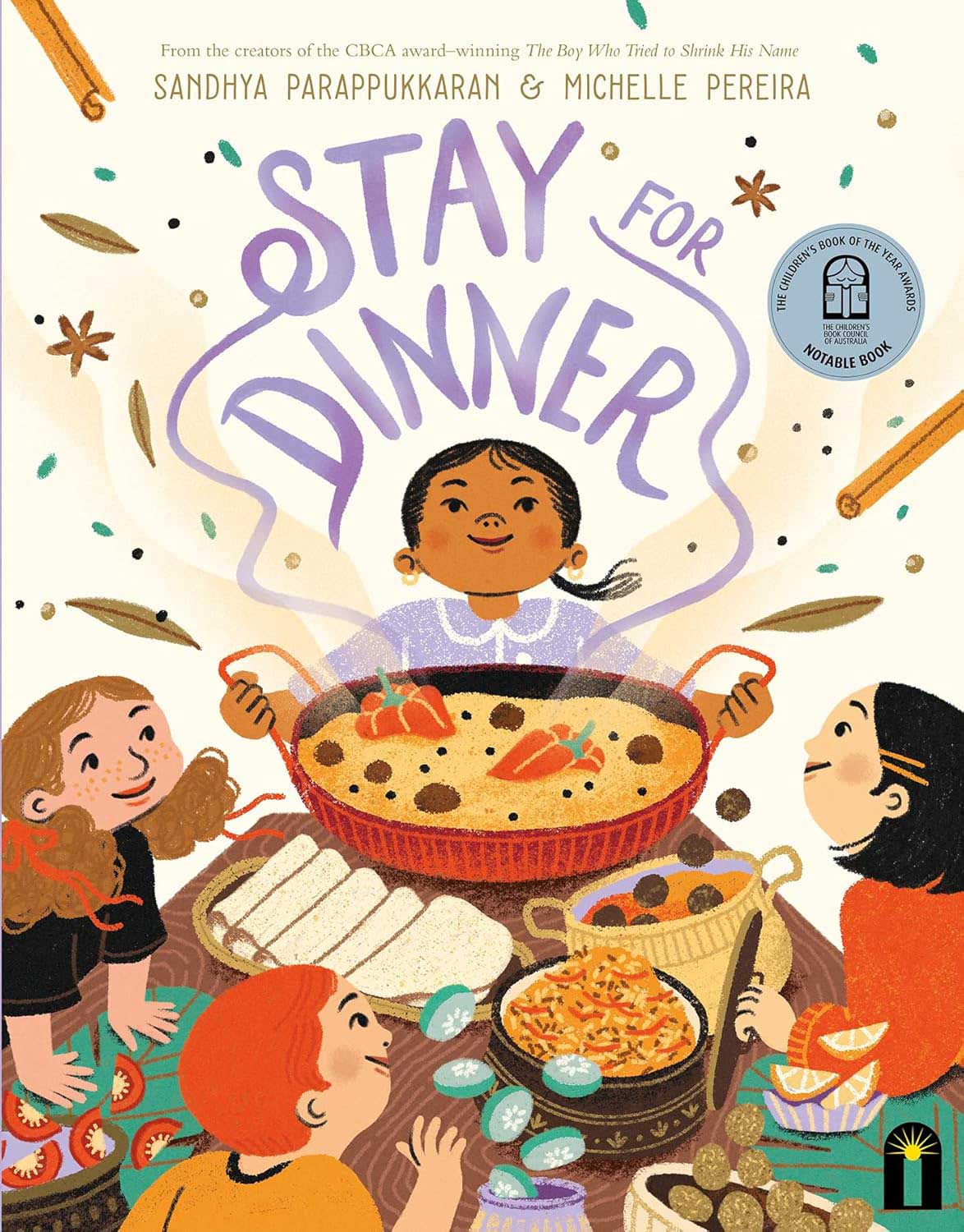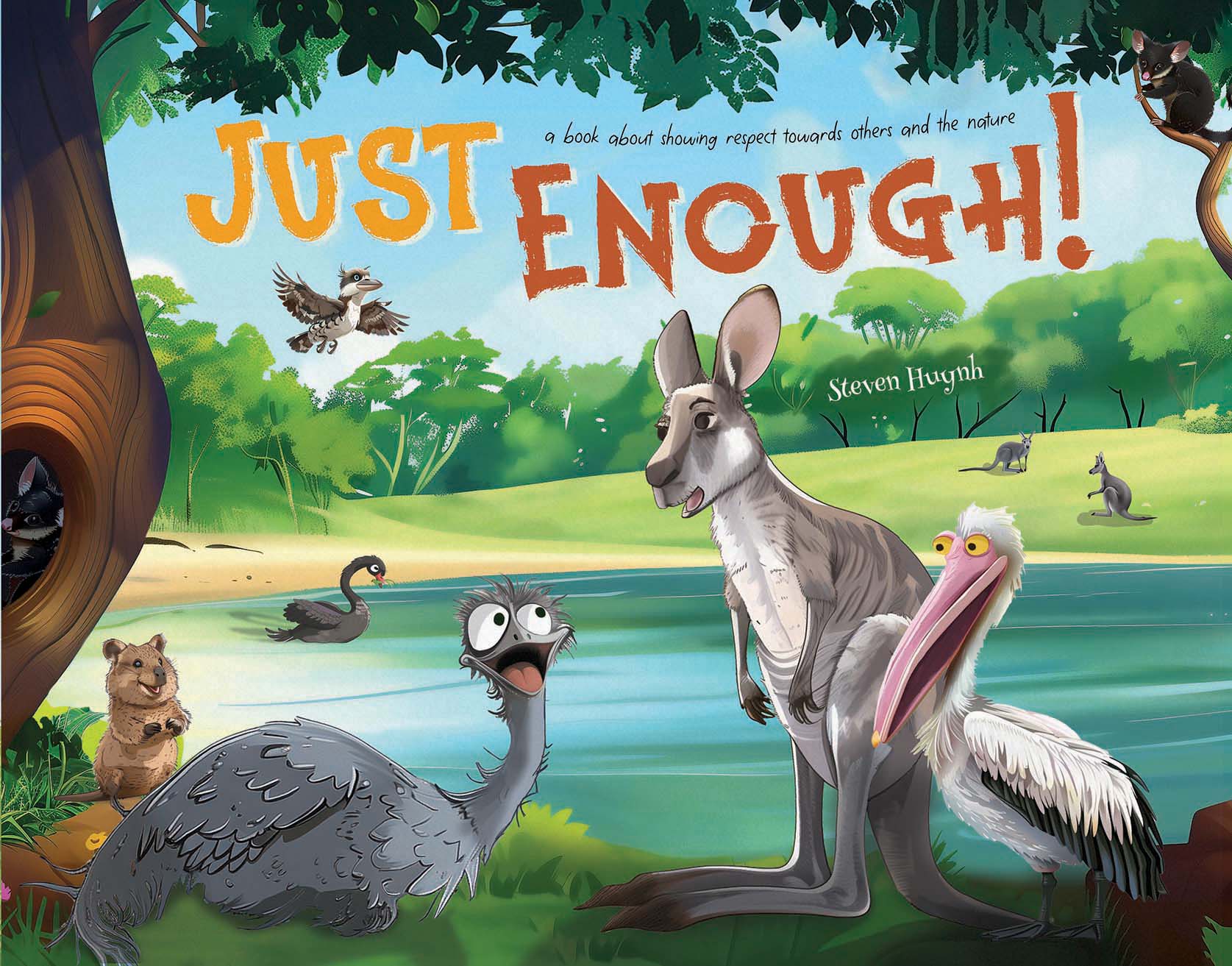Book
Expand | Collapse Search filter
-
Ten Little Dinosaurs
Written by Mike Brownlow
Illustrated by Simon Rickerty
Published by Orchard Books
Theme/topic: Mathematics
Suggested learning area: AC9MFN01 (Mathematics – Foundation) ACELA1439 (English Language and Literacy – Foundation) ACMNA001 (Mathematics – Foundation) ACMNA002 (Mathematics – Foundation)📔 byThis delightful rhyming adventure captivates young readers with its playful text and vibrant illustrations. The story counts down from 10 to 1 as a group of mischievous little dinosaurs encounters various adventures and challenges, blending humour with basic counting skills (ACMNA001, AC9MFN01 – Foundation Year, Mathematics). It connects number names, numerals, and the number of dinosaurs (ACMNA002 – Foundation Year, Mathematics), making it a valuable tool for early numeracy. The rhymes and repetitive patterns not only entertain but also foster language development and phonemic awareness (ACELA1439 – Foundation Year, English). With its engaging narrative and educational focus, Ten Little Dinosaurs is a perfect read-aloud choice for young children, combining fun and learning in one enjoyable package.
Bears on Wheels
Written & illustrated by Jan Berenstain and Stan Berenstain
Published by Random House Books for Young Readers
Theme/topic: Mathematics
Suggested learning area: AC9MFN01 (Mathematics – Foundation) ACMNA001 (Mathematics – Foundation) ACMNA002 (Mathematics – Foundation) ACMNA003 (Mathematics – Foundation)📔 byThis lively and engaging story introduces young readers to basic counting from 1 to 10 (ACMNA001, AC9MFN01 – Foundation Year, Mathematics). The simple yet entertaining narrative follows bears as they ride on wheels in various configurations, showcasing relationships between numbers and objects (ACMNA002 – Foundation Year, Mathematics). Through its use of repetitive patterns and clear visual representations, the book helps children practise subitising small collections (ACMNA003 – Foundation Year, Mathematics). With its playful illustrations and rhythmic text, Bears on Wheels is an excellent resource for building early numeracy skills in an enjoyable and interactive way.
One Is a Snail, Ten Is a Crab
Written by April Pulley Sayre and Jeffrey Sayre
Illustrated by Randy Cecil
Published by Walker Books
Theme/topic: Mathematics
Suggested learning area: AC9MFN01 (Mathematics – Foundation) ACMNA001 (Mathematics – Foundation) ACMNA002 (Mathematics – Foundation) ACMNA031 (Mathematics – Year 2)📔 byThis delightful and imaginative book introduces young readers to counting (ACMNA001, AC9MFN01 – Foundation Year, Mathematics) and basic multiplication concepts. By using the number of feet on various animals, the story encourages children to explore basic counting with feet (ACMNA002 – Foundation Year, Mathematics) and repeated addition, grouping, and arrays to represent numbers. This creative approach not only reinforces counting skills but also provides a playful foundation for understanding multiplication (ACMNA031 – Year 2, Mathematics). Additionally, the book supports early number recognition and sequencing as children practice counting and comparing quantities. With its vibrant illustrations and humorous scenarios, this book engages young learners while fostering critical thinking and problem-solving skills in an enjoyable way.
 📔 colaborating, evaluating-design, friendship, narrative, persistence, producing, rhyme, and teamwork
📔 colaborating, evaluating-design, friendship, narrative, persistence, producing, rhyme, and teamworkLet’s Build A Boat
Written by Jane Godwin
Illustrated by Meg Rennie
Published by Little Hare Books
Theme/topic: Colaborating, Evaluating (design), Friendship, Narrative, Persistence, Producing, Rhyme, and Teamwork
Suggested learning area: AC9HP2P01 (Health and Physical Education – Year 1,Year 2) AC9HP2P03 (Health and Physical Education – Year 1,Year 2) AC9TDE2P01 (Design and Technologies – Year 1,Year 2) AC9TDE2P02 (Design and Technologies – Year 1,Year 2) AC9TDE2P03 (Design and Technologies – Year 1,Year 2) AC9TDE2P04 (Design and Technologies – Year 1,Year 2)📔 byThis inspiring picture book celebrates teamwork, creativity, and determination. As a group of children come together to build a boat for their picnic on an island, the story naturally lends itself to discussions about the purpose of a boat in general and context of the text (AC9TDE2K01 – Years 1 and 2, Design and Technologies). The story also highlights the importance of preparation before they begin (AC9TDE2P01 – Years 1 and 2, Design and Technologies), innovation and problem-solving when they face the challenge at sea (AC9TDE2P03 – Years 1 and 2, Design and Technologies).
Throughout their journey, they experience challenges and moments of joy, allowing students to reflect on how they manage emotions in different situations (AC9HP2P03 – Years 1 and 2, Health and Physical Education). The story also supports children in understanding how teamwork, resilience, and problem-solving help them to achieve shared goals (AC9HP2P01 – Years 1 and 2, Health and Physical Education).
Let’s Build a Boat is a perfect launchpad for hands-on STEM or creative projects, as well as social-emotional learning discussions around collaboration, effort, and celebrating differences.
AC9HP2P01 (Health and Physical Education – Year 1,Year 2) AC9HP2P03 (Health and Physical Education – Year 1,Year 2) AC9TDE2P01 (Design and Technologies – Year 1,Year 2) AC9TDE2P02 (Design and Technologies – Year 1,Year 2) AC9TDE2P03 (Design and Technologies – Year 1,Year 2) AC9TDE2P04 (Design and Technologies – Year 1,Year 2)Noah: The Dog Of The Anzac Spirit
Written & illustrated by Steven Huynh
Published by Steven De GC
Theme/topic: Health and Physical Education and Humanities and Social Sciences
Suggested learning area: ACHASSK012 (Humanities and Social Sciences – Foundation) ACHASSK013 (Humanities and Social Sciences – Foundation) ACHASSK045 (Humanities and Social Sciences – Year 2) ACPPS001 ( – Foundation) ACPPS015 ( – Year 1,Year 2) ACPPS020 ( – Year 1,Year 2)📔 byThe story weaves themes of courage, kindness, and resilience with an appreciation for Australia’s history. Noah, a lovable and compassionate dog, dreams of becoming a hero like his owner’s grandfather, an Anzac veteran. Inspired by stories shared through photos of Grandpa (ACHASSK013 – Foundation Year, Humanities and Social Sciences), Noah finds daily motivation to use his strength—kindness—to help others (ACPPS001, ACPPS015 – Foundation to Year 2, Health and Physical Education).
The story also touches on the importance of commemorating past events, such as Anzac Day, that hold deep meaning for communities (ACHASSK012 – Foundation Year, Humanities and Social Sciences) and highlights a historical site dedicated to honouring Anzac soldiers (ACHASSK045 – Year 2, Humanities and Social Sciences). Through vibrant illustrations and an engaging narrative, Noah: The Dog of the Anzac Spirit inspires young readers to embody the Anzac values of perseverance and resilience (ACPPS020 – Years 1 and 2, Health and Physical Education), while fostering a connection to Australia’s rich cultural heritage.
Stay For Dinner
Written by Sandhya Parappukkaran
Illustrated by Michelle Pereira
Published by Bright Light
Theme/topic: Action words, Health and Physical Education, and Narrative
Suggested learning area: AC9HP2P01 (Health and Physical Education – Year 1,Year 2) AC9HP2P02 (Health and Physical Education – Year 1,Year 2) AC9HP2P03 (Health and Physical Education – Year 1,Year 2)📔 byStay for Dinner by Sandhya Parappukkaran is a vibrant celebration of cultural diversity and the connections made through shared meals. The story centres on a family preparing a special dinner for their child’s friends, offering a glimpse into various mealtime customs and table manners (AC9HP2P01 – Years 1 and 2, Health and Physical Education). Through the lens of this dinner, the book explores the emotional responses and questions that arise from cultural traditions (AC9HP2P03 – Years 1 and 2, Health and Physical Education), encouraging children to embrace diversity and appreciate the richness of different cultural backgrounds (AC9HP2P02 – Years 1 and 2, Health and Physical Education).
The narrative is brought to life with vivid sound and imagery words such as “squish,” “splash,” “slice,” and “prong,” capturing the sensory experience of the meal. Culinary terms like “papadum,” “sadhya,” and “dumpling” add authenticity and depth, inviting readers into the world of diverse cuisines. As the main character reflects on her and her friends’ mealtime experiences, the story underscores the importance of understanding and respecting different customs, fostering a sense of togetherness and mutual respect.
With its rich illustrations and heartwarming themes, Stay for Dinner inspires children to find joy in sharing meals and traditions, highlighting the value of friendship and cultural appreciation.
In My Heart: A Book of Feelings
Written by Jo Witek
Illustrated by Christine Roussey
Published by Abrams Appleseed
Theme/topic: Health and Physical Education
Suggested learning area: AC9HPFP03 (Health and Physical Education – Foundation) ACPPS005 ( – Foundation)📔 byIn My Heart: A Book of Feelings by Jo Witek is a beautifully illustrated story that explores a wide range of emotions in a way that is accessible to young children. The book follows a young girl as she describes how different feelings manifest in her heart—whether it flutters with happiness, feels heavy with sadness, or pounds with excitement.
Through expressive language and vivid imagery, the book helps children recognise, name, and understand their emotions, supporting their ability to describe how their body reacts to different feelings and situations (AC9HPFP03, ACPPS005 – Foundation Year, Health and Physical Education). The engaging die-cut heart illustrations add a tactile element, reinforcing the idea that emotions come in many forms and are a natural part of life. In My Heart is a valuable resource for fostering emotional literacy, encouraging self-awareness, and promoting discussions about feelings in a comforting and relatable way.
Big Rain Coming
Written by Katrina Germein
Illustrated by Bronwyn Bancroft
Published by Picture Puffin
Theme/topic: Mathematics and Weather impacts
Suggested learning area: AC9MFM02 (Mathematics – Foundation) AC9S1U02 (Science – Year 1) ACMMG007 (Mathematics – Foundation) ACSSU004 (Science – Foundation)📔 byBig Rain Coming by Katrina Germein is a beautifully written and atmospheric story that captures the anticipation of rainfall in a remote Australian Indigenous community. Throughout the week, the land remains dry, and the people wait patiently for the relief that the rain will bring. The book helps students explore observable weather changes and how they impact the environment and daily life (ACSSU004 – Foundation Year; AC9S1U02 – Year 1, Science). It also help kids compare and recognise the extensive knowledges of daily and seasonal changes in weather patterns and landscape held by First Nations Australians.
The timely, predictable text encourages children to recognise and describe the sequence of the days of the week, supporting their understanding of time (ACMMG007, AC9MFM02 – Foundation Year, Mathematics). With its rich language and evocative illustrations, Big Rain Coming fosters curiosity about weather patterns and seasonal changes while promoting discussions about patience, resilience, and connection to the land.
Just Enough!
Written & illustrated by Steven Huynh
Published by Steven De GC
Theme/topic: Basic needs, Health and Physical Education, and Sustainability
Suggested learning area: ACPPS006 ( – Foundation) ACPPS022 ( – Year 1,Year 2) ACSSU002 (Science – Foundation) ACSSU019 (Science – Year 1)📔 byThe narrative encourages students to take only what is needed (ACPPS006, ACPPS022 – Foundation to Year 2 Health and Physical Education), reinforcing fairness in sharing resources like classroom materials. It also explores the negative consequences of overuse by addressing the basic needs of animals—food, water, and shelter (ACSSU002 – Foundation Year Science) —demonstrating how overuse impacts wildlife and habitats. Highlighting environmental changes caused by resource depletion (ACSSU019 – Year 1 Science), fostering the awareness of sustainability. With its rich themes of sharing and environmental stewardship, this story inspires young learners to adopt mindful, responsible habits in their daily lives.










